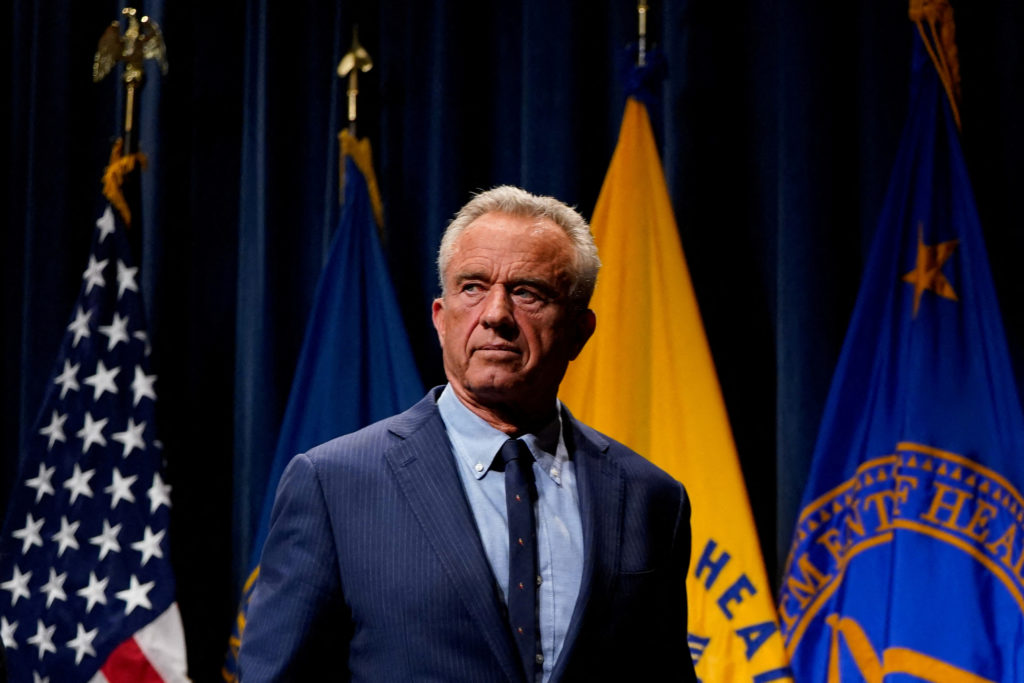NEW YORK (AP) — U.S. Health Secretary Robert F. Kennedy Jr. announced on Wednesday the appointment of eight new members to the Advisory Committee on Immunization Practices (ACIP), replacing the previously dismissed panel. This decision has stirred controversy, as the new appointees include figures known for their criticism of COVID-19 vaccines and pandemic measures.
The announcement comes after Kennedy’s abrupt dismissal of the 17-member panel earlier this week, a move that has been met with significant backlash from medical professionals and public health organizations. Critics fear that the new panel may align more closely with Kennedy’s views on reassessing existing vaccination recommendations.
Controversial Appointments
Among the new appointees is Dr. Robert Malone, a former mRNA researcher who gained notoriety for his skepticism about COVID-19 vaccines. Malone has been a vocal critic, often appearing on conservative media outlets to promote unproven treatments and conspiracy theories about the pandemic. Another notable appointment is Dr. Martin Kulldorff, co-author of the Great Barrington Declaration, which argued against pandemic lockdowns.
Vicky Pebsworth, another appointee, has ties to the National Vaccine Information Center, a group criticized for spreading vaccine misinformation. Dr. Cody Meissner, a former ACIP member and expert in pediatric infectious diseases, is also among the new members, bringing experience from his previous roles on vaccine advisory panels.
Background and Implications
The ACIP, established in 1964, plays a crucial role in advising the Centers for Disease Control and Prevention (CDC) on vaccine use in the United States. The CDC typically follows the committee’s recommendations, which influence national vaccination programs. Kennedy’s decision to overhaul the panel raises questions about the future direction of U.S. vaccine policy.
Kennedy, a prominent figure in the anti-vaccine movement before his appointment as Health Secretary, has expressed concerns about the committee’s ties to vaccine manufacturers. He argues that these connections compromise the integrity of the panel’s recommendations. However, experts like Jason Schwartz, a health policy researcher at Yale University, caution against excluding experienced vaccine researchers who have collaborated with the industry.
“If you are to exclude any reputable, respected vaccine expert who has ever engaged even in a limited way with the vaccine industry, you’re likely to have a very small pool of folks to draw from,” Schwartz said.
Future of Vaccine Policy
Since taking office, Kennedy has made several controversial decisions regarding vaccine policy. Despite assurances during his Senate confirmation that he would not alter the vaccination schedule, Kennedy has already ignored some ACIP recommendations, including those related to COVID-19 and RSV vaccines.
On Monday, Kennedy dismissed the entire ACIP, promising to appoint a new panel before the next meeting in late June. The agenda for this meeting remains undisclosed, but it is expected to include votes on vaccinations for flu, COVID-19, HPV, RSV, and meningococcal bacteria.
The appointment of only eight new members raises questions about whether additional members will be announced. A spokesperson for the Department of Health and Human Services declined to comment on the final composition of the panel.
Looking Ahead
The reshaping of the ACIP under Kennedy’s leadership could have significant implications for public health policy in the United States. As the new panel prepares to meet, the medical community and the public await further details on how these changes will impact vaccine recommendations and the broader fight against infectious diseases.
Associated Press reporters Matthew Perrone, Amanda Seitz, Devi Shastri, and Laura Ungar contributed to this report.
